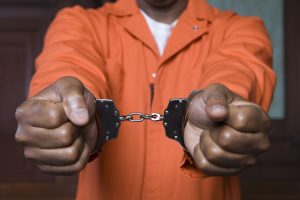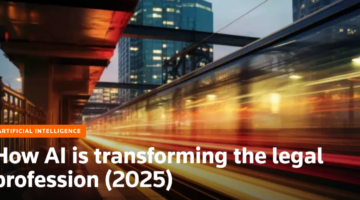 Some people might argue that defendants in the United States have all the advantages. First, they do not have to prove they’re innocent. It’s the prosecution that must prove they’re guilty. Next, they don’t have to speak in court, and that can’t be held against them. Every person arrested (citizen and non-citizen alike) has the right to a court-appointed attorney if he can’t afford a private lawyer. Finally, it’s a jury of their peers who judges them, not some omnipotent judge, and their verdict must be unanimous.
Some people might argue that defendants in the United States have all the advantages. First, they do not have to prove they’re innocent. It’s the prosecution that must prove they’re guilty. Next, they don’t have to speak in court, and that can’t be held against them. Every person arrested (citizen and non-citizen alike) has the right to a court-appointed attorney if he can’t afford a private lawyer. Finally, it’s a jury of their peers who judges them, not some omnipotent judge, and their verdict must be unanimous.
With all these laudable protections, you’d think the criminal justice system would work flawlessly. Innocent people wouldn’t be convicted of crimes, prisons wouldn’t be filled with mostly black and Hispanic men disproportionate to their numbers in society, and judges would mete out punishments fairly.
But nothing’s perfect, and although our system is one of the best in the world, that’s just because the world’s got even farther to go than we do.

How MyCase’s Smart Spend Can Help Increase Your Profits
This tweak to your financial management seems like a no-brainer.
There’s so many things that can be done to improve our present model, but first and foremost would be compelling the prosecution to turn over evidence on a case before trial. And I don’t mean just the day before, but with enough advance to actually make good use of it.
Imagine playing poker where everyone in the game hides his cards but you. You’d likely not know whether to fold or raise. How do you possibly win?
In criminal law, the prosecutor holds all the cards. She gathers the evidence such as police reports, interviews with witnesses, phone records, video, Facebook postings, computer data, cell-cite triangulation, and forensic evidence. She puts the witnesses in the grand jury and knows, of those witnesses, who’s willing to come back, who’s believable, and who’s got a criminal record, coke habit, or mental illness.
In most states, defendants have no access to this data, the meat and potatoes of figuring out how strong the case is, until just days (if not the very day) they start trial. Then, often so much information is dumped on the defense attorney — binders and binders of documents, tapes of phone calls, medical records of complainants, etc. — that it’s a marathon for the attorney to just go through the packet, much less absorb and organize it for trial. It could be information the attorney would have used to develop a defense.

How AI Is Transforming The Legal Profession (2025)
A survey of professionals reveals the impact of legal work, clients, concerns, and future roles.
Rarely is there enough time to copy all the material for the defendant — the most important guy in the case. If you were charged with a crime, wouldn’t you want all the materials before the trial started?
Confronted with this situation, I’ve known defense attorneys who have literally suffered heart attacks from the pressure of going through so much material in such a short time. It’s tough enough to effectively represent your client at trial and win, but if you’ve had to pull a few all-nighters, it’s practically impossible.
This practice of hiding the ball is outrageous, but it’s been upheld by courts and legislatures for decades.
Open-file discovery is the remedy. A few states have it, but all should. Open-file discovery ideally means that everything the prosecutor gathers in a case should be given to opposing counsel. The argument against it is goes like this — if given evidence early, defendants will use the information to intimate or threaten witnesses. While I’m sure this happens on occasion, it shouldn’t be a blanket excuse for providing nothing. Witnesses who truly fear for their safety can have their names redacted. However, the contents of their testimony, grand jury minutes, and police reports, should be released.
Having access to this information would help defense attorneys assess the strength of the evidence they’re up against sooner. It could therefore lead to earlier pleas, saving the system the time and money it takes to hold a trial.
True, the information could also be used to develop defenses — but isn’t that a good thing, especially if we actually subscribe to the presumption of innocence? What are prosecutors afraid of?
The other danger of having only the prosecutors in charge of evidence is that they might not reveal what contradicts their case. Yes, it is their duty to reveal any information that exculpates the defendant, but this is often a subjective matter. Something they see as having nothing to do with a defense, is something a defense attorney might see as the key to her case.
I had a case once — a one-witness robbery where identification was key — where the prosecutor “overlooked” a photo of my client taken a week earlier by police in another state. (Apparently “walking while black” in some streets in Maryland merits a police photo.) The photo definitively showed the defendant had a crew cut and could not have been the perp the victim described as having long dreadlocks. Yes, my client might have worn a wig the day of the crime, but I would have rather had the chance to argue against that point to a jury than not have been told about the photo at all.
This does not take into account bad faith of some prosecutors who actually hide or destroy evidence unfavorable to their case. I think (and hope) this is rare, but it happens. While their duty is to serve justice, they’re only human and, as such, often just want to win. For them, the presumption of innocence is not a mandate but a mere nicety a jury has to attend to, not them. If they think a defendant is guilty and want him found so, unscrupulous prosecutors (aided by police) will do whatever it takes to see him go down. In Suffolk County, New York, former homicide prosecutor Glenn Kurtzrock was caught actually altering hundreds of pages of police records to make his case stronger. He got fired but never prosecuted for a crime or sued civilly. Why? Except in the most egregious of cases, prosecutors have immunity.
That’s why there are two sides and an arbiter, the judge, in the middle.
Just last week, federal prosecutors in the Southern District were excoriated by a judge for telling defense counsel just days before trial that a different person (not the defendant) confessed to the crime for which the defendant was being tried. Whether they found the confessor believable or not, is not their decision to make — it’s ultimately a jury’s. The defense attorneys should have known this a lot sooner.
There’s no good reason not to have universal open-file discovery. On a case-by-case basis, judges could decide whether information is too sensitive to be released to defense, but that should be the exception, not the rule.
Toni Messina has tried over 100 cases and has been practicing criminal law and immigration since 1990. You can follow her on Twitter: @tonitamess.